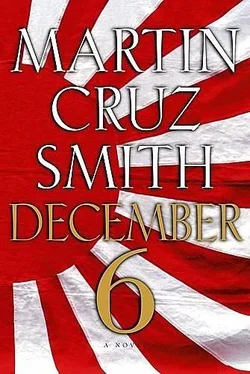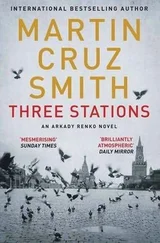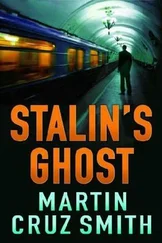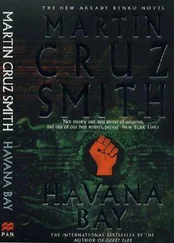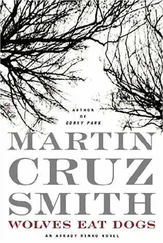“As long as you want. I’m telling you true…” He dug his fingers in her hair, soft and thick as water.
“You swear?”
He whispered, “If I could be with you.”
“Okay, okay, Harry.” Michiko let her head loll in his hand. She stubbed out her cigarette and pulled off her socks. “You win.”
THE HAPPY PARIS had originally been a tearoom. Harry had transformed it with saloon tables, a bar stocked with Scotch instead of sake and a red neon sign of the Eiffel Tower that sizzled over the door. Half the clientele were foreign correspondents who had been blithely assigned by the AP, UPI or Reuters without a word of Japanese. Some were mere children sent directly from the Missouri School of Journalism. Harry took mercy on them as if he were their pastor and they were his flock, translating for them the gospel of Domei, the Japanese news agency. The other regulars were Japanese reporters, who parked motorcycles outside the club for a quick getaway in case war broke out, and Japanese businessmen who had traveled the world, liked American music and knew one Dorsey brother from the other. The closer war seemed, the more people packed the Happy Paris and all of Tokyo ’s bars and theaters, peep shows and brothels.
They didn’t come for geishas. Geishas were a luxury reserved for financial big shots and the military elite. But if it was a rare man who could afford a geisha, a couple of yen could buy even a poor man the attentions of a café waitress. Waitresses came in all varieties, sweet or acid, shy or sharp, wrapped in kimonos or little more than a skirt and garter.
Many came for Michiko. Michiko was the Record Girl for the Happy Paris. Her task was simply to stand in a sequined jacket by a Capehart jukebox as tall as she was and, at her own mysterious whim, push the buttons for music-“Begin the Beguine” followed by Basie followed by Peggy Lee. Seventy-eights changed in slow motion from tone arm to turntable under an illuminated canopy of milk-blue glass, and dropped down the spindle with an audible sigh. Michiko did virtually nothing. The waitresses, Kimi and Haruko, circulated in short tricolor skirts. Haruko patterned herself from her hair to her toes on Michiko, but her legs were sausages in contrast to Michiko’s in their silky hose. While Haruko and Kimi had actually been geishas and could simper and giggle with the best, Michiko cut customers dead. She played only records of her choice, a balance of swing and blues, closing her eyes and swaying so subtly to a song that she sometimes seemed asleep. The year before, there had been a fan magazine devoted to her-”The Sultry Queen of Jazz: Her Music, Her Hobbies, Her Weaknesses!”-totally fabricated, of course, with some snapshots. What made Michiko stand out most, Harry thought, was that even in the middle of a crowded club, with a dozen tables and booths full of voices, food and drinks shuttling back and forth on trays, she could have been alone. Michiko maintained a lack of self-consciousness that, added to a complete lack of morality, lent her a feline independence. She replaced “My Heart Stood Still” with “Any Old Time,” Shaw’s clarinet made lush with a saxophone reed.
Harry turned away to deal with Willie and DeGeorge. Al DeGeorge was the correspondent of The Christian Science Monitor and as stir-crazy as a zoo bear. Willie Staub was a young German businessman headed home from China via Japan and looked like an innocent among thieves.
DeGeorge was saying, “Harry runs a pool on when war will start between America and Japan, Tokyo time. Say there’s even military action. The Philippines are on our side of the dateline, Hawaii ’s a day behind, doesn’t matter, has to be Tokyo time. There’s got to be at least ten thousand yen in there now. Of course, the house-that’s Harry-takes five percent. Harry would take five percent on the apocalypse. Today’s the fifth. Hell, Willie, you’ve still got most of December. I got Christmas Day.”
“You’re a sentimentalist,” said Harry.
“The only problem,” DeGeorge said, “is that if we’re still here when the war begins, we’re fucked. No way out.” He directed a baleful gaze at Harry. “Rumor is, they’re going to get Nippon Air flying again. Put on a show with champagne, cute air hostesses and photographers, and fly some foreign bigwigs to Hong Kong as if everything is absolutely normal. My question is, who gets on that plane?” He turned to Willie. “The embassy sent special-delivery letters telling all Americans to leave. But no, we waited to see what Harry would do. We figured the boat Harry takes, that’s the last boat out. Now all the boats are gone and we’re down to a single plane.”
“I don’t know anything about this,” Willie said. “I just got here.”
“The Nazis must have told you to stay away from Harry.”
“I am a Nazi.”
“Willie thinks he’s a Nazi,” Harry told DeGeorge. “Anyway, don’t you have a job to do? Didn’t you tell me that the first man who calls the war can pick up a Pulitzer?”
“There’s no point in staying if I can’t do my job. No one will be interviewed by an American. I can’t even get them on the telephone because the Japs say all calls have to be in Japanese. Who speaks Japanese?”
Willie told Harry, “My embassy said you were engaged in sharp practices and I should stay away from you.”
“Good advice,” said Harry.
“But they don’t want me, either. I told them about my China report.”
“What report?” DeGeorge asked.
Harry said, “Willie was factory manager for Deutsche-Fon in China. He saw a lot.”
DeGeorge lowered his voice. “Jap atrocities? Rape of Nanking?”
“Exactly,” Willie said.
“Old news.”
“Not in Berlin. Germans should know these things.”
“It was just one of those things…” Michiko hugged herself as if holding someone tight, her face conveying a private reverie that men in the Happy Paris yearned to join. The noise level was high because the Japanese loved to drink and got drunk fast and flirted with the waitresses even as they craved Michiko. Kimi batted her eyes at Willie, who had the golden looks of Gary Cooper and displayed a wounded Cooperish look when people disappointed him.
“I don’t think the German people are interested in atrocities,” Harry said. “There’s been a lot going on there that you haven’t heard about in the hinterlands of Asia.”
“But Germany is winning the war.”
“Maybe. You should probably keep your nose clean and stay away from me.”
“You’re the only person I know in Tokyo. Also I had to show you something.” Willie pulled a folded newspaper from his jacket, but Harry was distracted by a customer who grabbed Haruko and planted her on his lap while she squirmed like a satin worm. This wasn’t a rare occurrence; she had many admirers.
Harry joined them. “Haruko, go wait on tables. Matsu, let her go.”
“He’s just playful,” Haruko said.
“He’s drunk.”
“That, too.”
Matsu released her and let his head roll sloppily. He had an artistic beard and wore a viewfinder around his neck, in case anyone forgot his calling.
“It was just one of those nights,” Matsu sang along.
“You’re pissed.”
Matsu inhaled deeply and broke into a grin. “Yesss, I think so. I hope so. Harry, do you remember Watching Cherry Blossoms Fall?”
“A sensitive film.”
“My film, thank you. Do you think, afterward, that people will remember that film when they think of the director Matsu?”
“After what?”
Matsu lifted the viewfinder to his eye and scanned the room. “This is beautiful. Not Paris, I’m sorry, but still beautiful. Because the only time you’ll know the soul of another man is when he’s drunk. And a man can tell things to a waitress that he will never tell his wife. This is a happy place.”
Читать дальше
